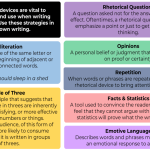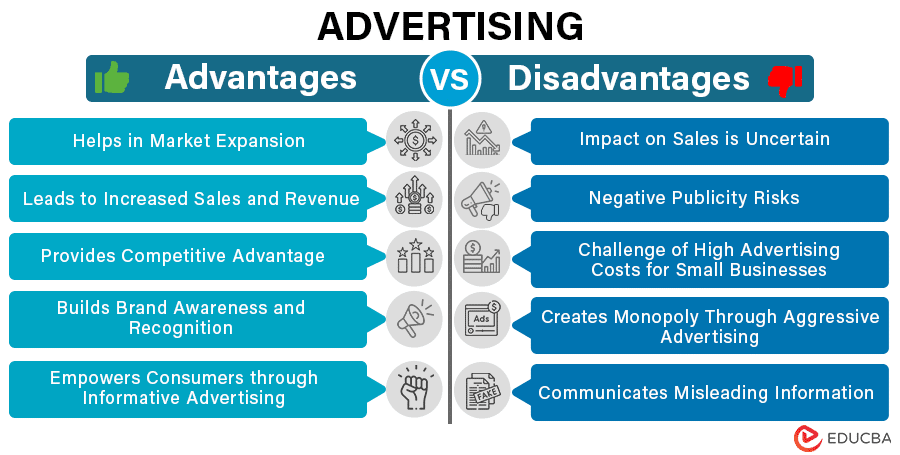The Definition of Advertising
Advertising is a marketing strategy that involves using various mediums to promote products, services, or ideas to potential consumers. This form of communication is typically non-personal, meaning it is directed towards a large group of people rather than an individual. It aims to create a demand, increase awareness or change the perception about a product or service.
Types of Advertising
There are several different types of advertising, each with its own unique purpose and characteristics. These include print advertising, which involves traditional mediums like newspapers and magazines; digital advertising, which utilizes various online platforms; outdoor advertising that uses billboards and other public spaces; and broadcast advertising such as television and radio.
Role of Advertising
The role of advertising in business and society is crucial. It helps companies to differentiate their products from their competitors, thus influencing consumer’s decision-making process. Advertising also plays a key role in informing consumers about new products, services or ideas; building brand loyalty; enhancing company image; and even contributing to economic growth by stimulating demand.
Effectiveness of Advertising
Advertising, when done effectively, has the power to greatly influence audience perceptions and behaviors. The effectiveness of advertising often largely depends on the innovativeness of the ad campaign, its alignment with target market preferences, and the credibility of the message delivered.
The Advantages of Advertising
Advertising is a powerful tool in the business industry. It provides countless benefits that can elevate a business from obscurity to popularity. Some of the advantages include boosting sales, establishing brand identity, and reaching out to a wider audience.
 Essential Characteristics an Effective Advertisement Should Have: Comprehensive Guide
Essential Characteristics an Effective Advertisement Should Have: Comprehensive GuideBoosting Sales
Arguably, one of the primary advantages of advertising is its ability to boost sales. With strategic advertising, a business can effectively introduce their product or service to a targeted audience, prompting them to make a purchase. Consequently, increased sales lead to higher profits, facilitating business growth.
Establishing Brand Identity
Advertising plays a crucial role in establishing brand identity. A company can use different advertising strategies to create a unique image, narrative, and values that resonate with consumers. This not only differentiates the brand from competitors but also fosters trust and loyalty among its customers.
Reaching a Wider Audience
Finally, effective advertising can help businesses reach a wider audience. With a plethora of advertising platforms available today, from traditional print ads to digital channels, a business can reach potential customers across different geographical locations and demographics, expanding its market base.
The Disadvantages of Advertising
Advertising, despite its several advantages, comes with a handful of drawbacks as well. While it serves as an effective tool for businesses to promote their products and services, it isn’t without certain significant disadvantages. Understanding these adversities can help businesses better strategize their advertising campaigns.
The Cost
One notable disadvantage of advertising is its cost. Producing quality advertisements can involve substantial financial resources, especially for larger advertising campaigns on television and in print. The high cost of advertising can limit the ability of small businesses to compete with larger organizations.
 Essential Characteristics an Effective Advertisement Should Have: Comprehensive Guide
Essential Characteristics an Effective Advertisement Should Have: Comprehensive Guide Understanding the Basics: What is Advertising and its Crucial Role in Business Success
Understanding the Basics: What is Advertising and its Crucial Role in Business SuccessConsumer Annoyance
Another issue is consumer annoyance. Overexposure to ads can lead to potential customers becoming irritated and consequently disregarding the promotions entirely. This could not only lead to wasted resources for businesses but also tarnish their reputation.
Misleading Information
Thirdly, there’s the risk of misleading information. Some advertisements can often distort the facts about products or services, creating false expectations. This can backfire when consumers feel deceived, leading to a loss of trust and credibility in brands.
Comparing the Advantages and Disadvantages of Advertising
Advertising has been the lifeblood of business for many decades and continues to be a fundamental aspect of business strategy even in today’s digital era. However, like every aspect of business, there are both advantages and disadvantages to advertising, which must be considered to deploy it effectively. We shall now delve into an unbiased comparison of these aspects.
Advantages of Advertising
Advertising can boost brand awareness massively. Through consistent and well-crafted ads, businesses can make their brand known, not only locally, but also globally. It is also an effective way to communicate with the customers, letting them know about what products or services are available, their features, and why they are a better choice than competitors. And finally, advertising has the power to influence consumer perceptions and decisions, leading to increased sales and growth for the company.
Disadvantages of Advertising
However, advertising does not come without its downsides. To begin with, it can be very costly, especially for small businesses or startups that have limited budgets. In addition, the success of advertising is not always guaranteed and there is always a risk of low returns on investment. Furthermore, excessive advertising can also lead to customer annoyance, a concept known as «ad fatigue», and can negatively impact the brand’s image. Additionally, there is also a risk of misleading customers if the advertising isn’t accurate or true, which can lead to lost trust and damage to business reputation.
 Essential Characteristics an Effective Advertisement Should Have: Comprehensive Guide
Essential Characteristics an Effective Advertisement Should Have: Comprehensive Guide Understanding the Basics: What is Advertising and its Crucial Role in Business Success
Understanding the Basics: What is Advertising and its Crucial Role in Business Success Understanding the Basics: What is Content Creation and Its Importance in Digital Marketing
Understanding the Basics: What is Content Creation and Its Importance in Digital MarketingKey Takeaways: The Pros and Cons of Advertising
In the face of rapidly changing consumer habits and technological advancement, advertising remains a potent tool for businesses. It’s important, however, to consider both the pros and cons of advertising before making an informed decision about inclusion in marketing strategies.
Pros of Advertising
First and foremost, one of the significant benefits of advertising is its potential to increase brand awareness. It keeps your products or services in the mind of your potential clients, thereby widening your customer reach. Advertising also allows businesses to communicate their unique selling propositions, differentiating them from their competitors. Furthermore, a good advertising strategy can lead to increased sales and improved market presence.
Cons of Advertising
On the flip side, advertising also comes with its set of downsides. The most apparent disadvantage is the cost of advertising. For smaller businesses or startups, the high cost of advertising might be prohibitive. Another significant disadvantage is misinterpretation of the message. If not crafted carefully, ads can convey incorrect information, causing backlash from customers. Furthermore, constant exposure to ads can lead to advertising fatigue, causing consumers to grow indifferent to your promotional efforts.
